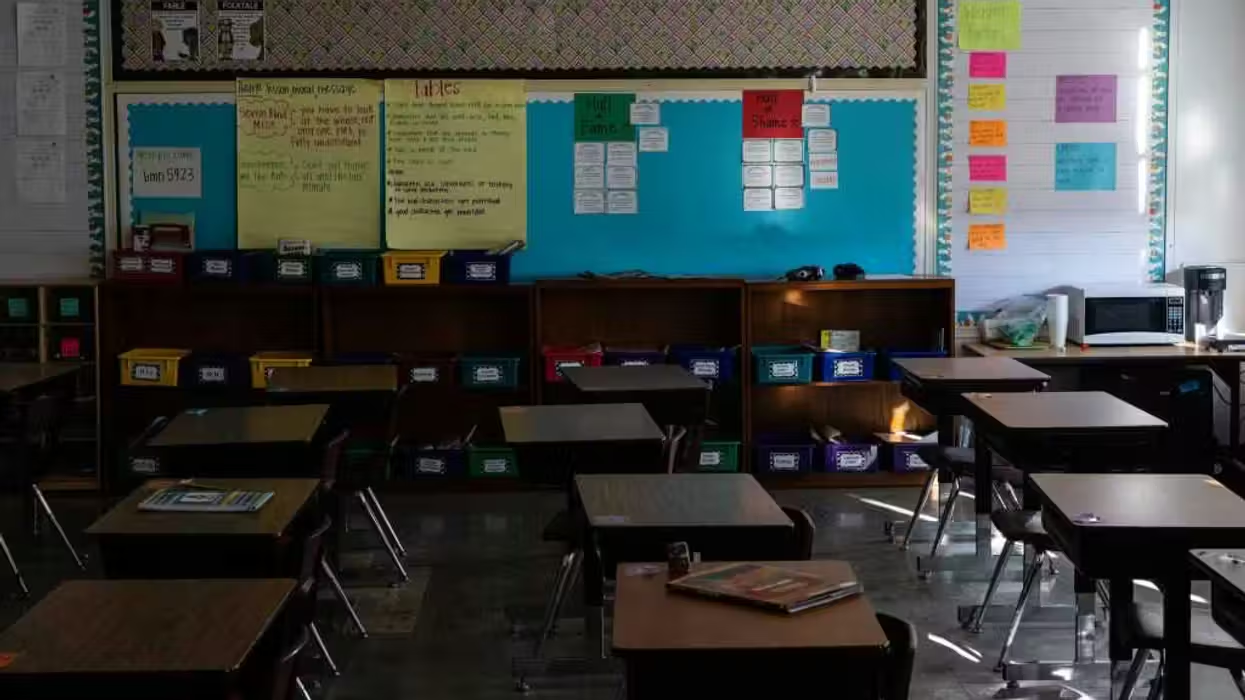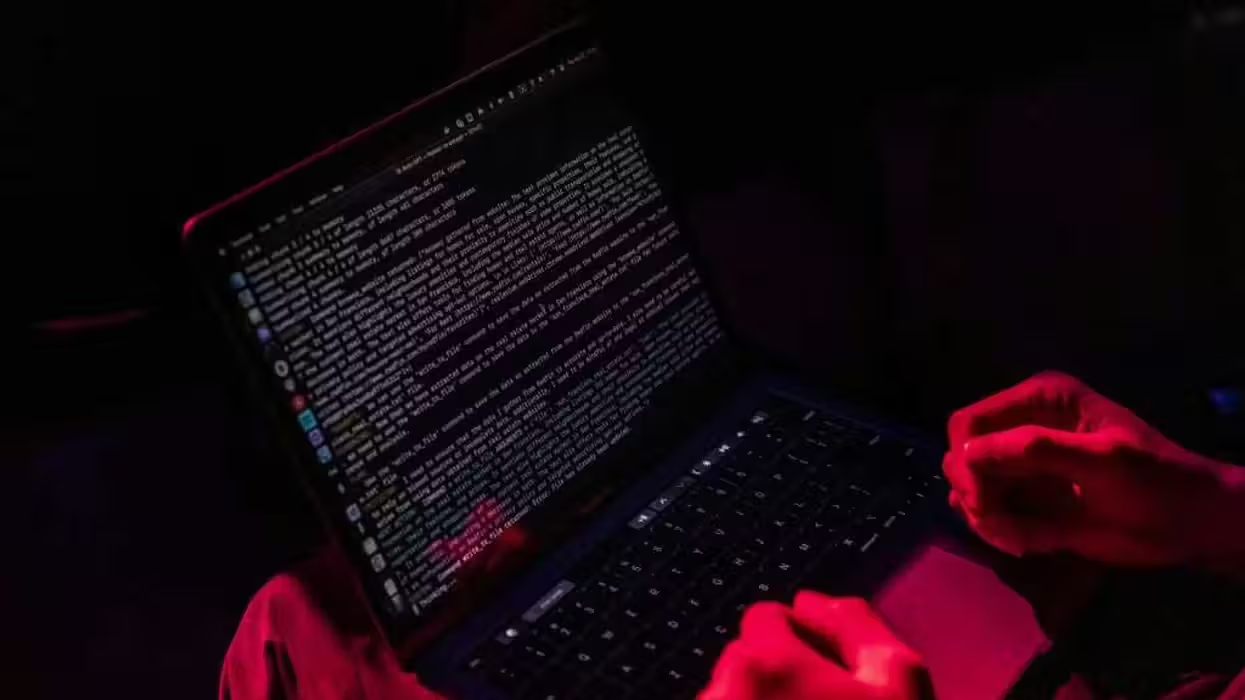
© 2026 Blaze Media LLC. All rights reserved.
"the virtual biographer of our daily activities"

Earlier this year, the Supreme Court ruled in a precedent-setting case that using a GPS tracking device on a vehicle without a warrant constituted a search and therefore violated the Fourth Amendment. Now, the same defendant is seeking to have a similar precedent set for warrantless tracking of cellphone data based on cell tower location.
(Related: FBI is having trouble finding those GPS trackers after SCOTUS ruling turns them off)
In January, the Supreme Court ruled unanimously in the United States v. Antoine Jones that use of a GPS device required a warrant, although the reasoning among the justices differed. At the time, the Blaze spoke with Greg Nojeim, director of the Center for Democracy and Technology’s project on freedom, security and technology, who said he believed this ruling opened the door for discussion on warrantless cellphone tracking as well -- and it has. Wired reports on Friday in a pre-trail of a retrial for Jones, defense attorney Eduardo Balarezo said the government is seeking to use cellphone tracking as a replacement for what it can't do now with GPS tracking. Balrezo said:
The government has produced material obtained through court orders for the relevant cellular telephone numbers. Upon information and belief, now that the illegally obtained GPS data cannot be used as evidence in this case, the government will seek to introduce cell site data in its place in an attempt to demonstrate Mr. Jones’ movements and whereabouts during relevant times. Mr. Jones submits that the government obtained the cell site data in violation of the Fourth Amendment to the United States Constitution and therefore it must be suppressed.

Earlier this year, Vice President of Public Policy for the CDT Jim Dempsey explained how cellphone tower tracking worked, saying that cell companies collect information about every seven seconds from the cell tower you’re connecting to. This information therefore pins a location pretty close to where you are. It's not as accurate as GPS tracking but relatively close. Dempsey also explained how cell towers could potentially become even more pervasive:
Imagine you had poor cell service in your house, Dempsey said providing an example. You could essentially get a tower put in your house; almost every floor of office buildings have their own cell tower now for good service. Now you have a precise location of inside your home, Dempsey said, where you and anyone who visits you and uses their cellphone can be picked up as data by the cell company, which doesn’t require a warrant for information.
Lower courts are divided on what cellphone data should be protected by the Constitution. A Texas District Court recently ruled warrantless search of cellphone records was unconstitutional:
“The records would show the date, time, called number, and location of the telephone when the call was made,” [U.S. District Court Judge Lynn N. Hughes of the Southern District of Texas] wrote in the decision, dated Nov. 11. “These data are constitutionally protected from this intrusion.”
But a separate appeals court ruled that a physical search of the cellphone -- in this case to obtain phone numbers -- was "so slight" of an invasion that it did not merit needing a warrant.
In the case of United States v. Jones, Wired points out that lower courts had initially approved warrantless GPS tracking of Jone's vehicle, which the Supreme Court eventually ruled unconstitutional. The same holds true for cell tower information:
A lower court judge in the Jones case had authorized the five months of the cell-site data without probable cause, based on government assertions that the data was “relevant and material” to an investigation.“Knowing the location of the trafficker when such telephone calls are made will assist law enforcement in discovering the location of the premises in which the trafficker maintains his supply narcotics, paraphernalia used in narcotics trafficking such as cutting and packaging materials, and other evident of illegal narcotics trafficking, including records and financial information,” the government wrote in 2005, when requesting Jones’ cell-site data.
While we'll be watching court decisions on the constitutionality of cell tower data collection without a warrant, a separate story has emerged recently that local police departments are using this technique to obtain information -- many in non-emergency situations. This practice was once thought reserved for federal agents.
The New York Times has revealed hundreds of police departments use cellphone tower data to help track subjects and that cellphone companies may be benefiting from this practice of divulging the information as well:
The practice has become big business for cellphone companies, too, with a handful of carriers marketing a catalog of “surveillance fees” to police departments to determine a suspect’s location, trace phone calls and texts or provide other services. Some departments log dozens of traces a month for both emergencies and routine investigations.With cellphones ubiquitous, the police call phone tracing a valuable weapon in emergencies like child abductions and suicide calls and investigations in drug cases and murders. One police training manual describes cellphones as “the virtual biographer of our daily activities,” providing a hunting ground for learning contacts and travels.
(Related: Texas city to buy $180K cellphone tacker to help 'combat criminal activity')
Although many police departments find information obtained in this manner useful in criminal investigations, the Times reports, there are advocates against this warrantless tracking. The American Civil Liberties Union, for example, believes the law is not keeping up with advancing technology in protecting the rights of citizens:
“It’s become run of the mill,” said Catherine Crump, an A.C.L.U. lawyer who coordinated the group’s gathering of police records. “And the advances in technology are rapidly outpacing the state of the law.”
Check out the New York Times story for specific examples of local police departments using cellphone tracking technology here.
Want to leave a tip?
We answer to you. Help keep our content free of advertisers and big tech censorship by leaving a tip today.
Want to join the conversation?
Already a subscriber?
more stories
Sign up for the Blaze newsletter
By signing up, you agree to our Privacy Policy and Terms of Use, and agree to receive content that may sometimes include advertisements. You may opt out at any time.
Related Content
© 2026 Blaze Media LLC. All rights reserved.
Get the stories that matter most delivered directly to your inbox.
By signing up, you agree to our Privacy Policy and Terms of Use, and agree to receive content that may sometimes include advertisements. You may opt out at any time.






